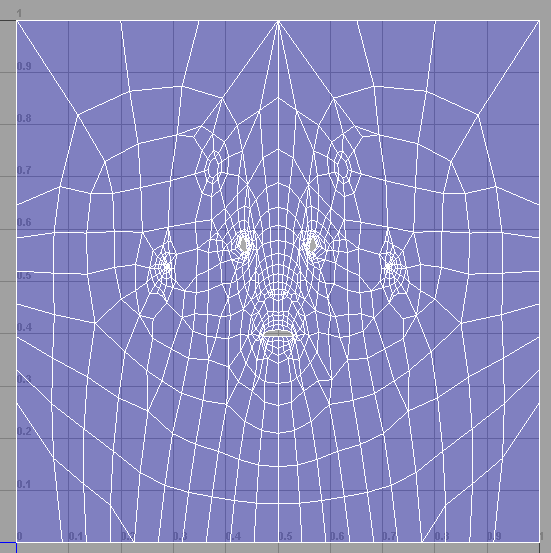Unfolding a UV mesh refers to the process of cutting a seam in a UV mesh and then unfolding along that seam. By laying out the UVs in this way, you can easily paint a texture on the 2D surface, which you can then wrap around the model.
Detailed steps for doing this are provided below, but here is a summary of the process:
- Create a planar mapping
- Unfold a UV mesh using the Unfold option
- Relax UVs
- Fix the unfolded mesh using the Smooth UVs tool
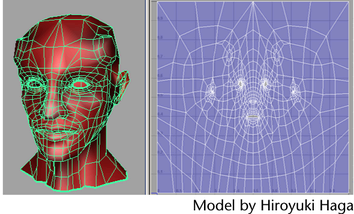
To create a planar mapping and unfold UVs
- In the
Modeling menu set, create a mapping for your object by selecting
and setting the
Planar Mapping options.
In this case, a planar projection from the front (the Z Axis) is appropriate. In other cases you must determine the best projection to start with.
- Open the
UV Editor ().
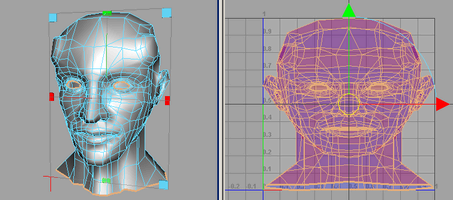
- In the perspective view, select a path of edges along the back of the head starting at the top of the forehead and ending at the bottom of the neck.
- In the
UV Editor, select
.
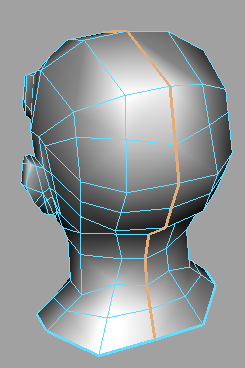
- Select the central UV at the top of the forehead and in the UV Editor, select .
- In the
Unfold UVs Options window that appears, select the following:
- Method: Legacy
- Pin UVs: On
- Pin selected UVs: On
- Unfold constraint: Horizontal
- Click
Apply and Close.
The UV shell unfolds relative to the selected UV on the forehead so that the previously cut edges are spread out horizontally.
Note: Rather than using the Unfold option, you can also use the Smooth UV Tool to unfold the entire UV shell. In this case, you would select all the UVs except for the one at the top of the forehead and then Shift + drag the Unfold icon to the right. - Use the
Scale Tool to scale the UV shell into the 0,1 texture space.

- Select the edges on one side of the mesh.
- Select
.
The UV border straightens.
- Repeat steps 10 and 11 for each side of the UV shell.
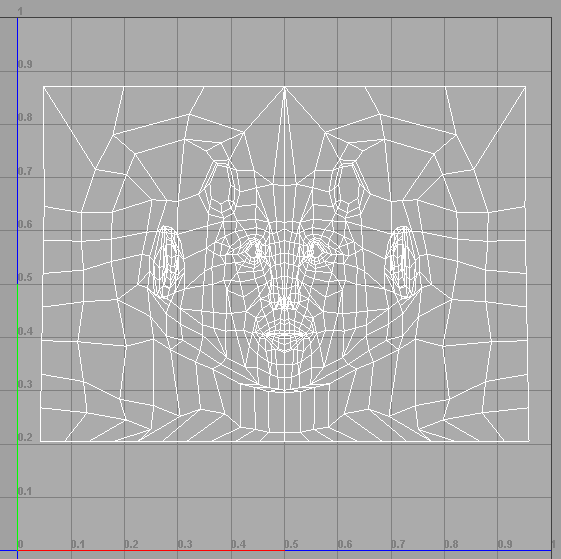
- Turn on the Snap to grids option.
- Select the
Move Tool and move the border UVs to the edge of the 0,1 texture space.
The Snap to grids option ensures that the UVs snap to the border precisely.
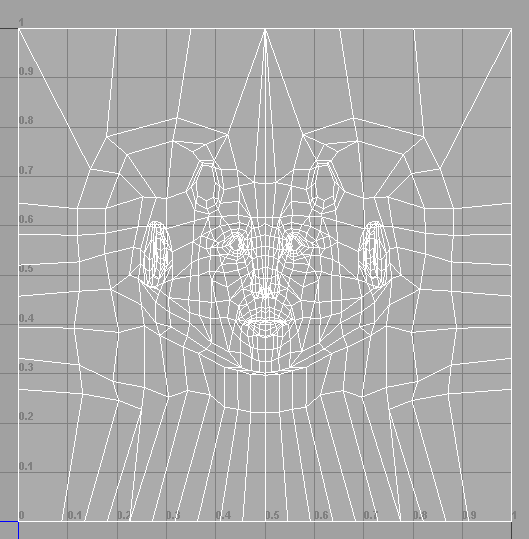
You can use the Smooth UV Tool to smooth out these problem areas.
To relax UVs
- In the UV Editor, select all the UVs.
- From the UV Editor menus, select .
- In the
Smooth UV Options window that appears, set the following:
- Pin Borders: On
(This ensures that the UV borders aren't distorted.
- Space: UV Space
- Pin Borders: On
- Click
Apply and Close.
Two controls named Unfold and Relax appear.
- Drag the
Relax control to the right.
The entire UV shell, except for the borders, relaxes evenly.
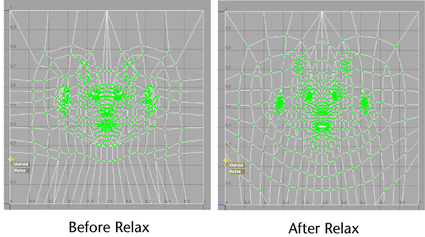
With the Smooth UV Tool you can use your eye to judge how much the UV shell should relax. However, whether you use this method or the Optimize option (), it is unlikely that the UV shell will be perfect.
- Turn on
Shaded UV Display
 to see small imperfections in your relaxed shell. For example, the UV shell around the eyes and corners of the mouth for this model cause the shell to overlap itself.
to see small imperfections in your relaxed shell. For example, the UV shell around the eyes and corners of the mouth for this model cause the shell to overlap itself.
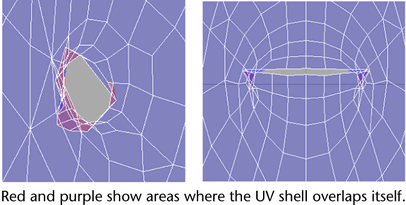
To fix an unfolded mesh using the Smooth UVs tool
- Select
.
The Smooth UV Options window appears.
- Turn off Pin Borders and then select Apply and Close.
- Select a set of UVs around the eye.
- Drag the
Unfold control to the right until the UV shell no longer overlaps itself.

- Repeat this operation for the mouth.
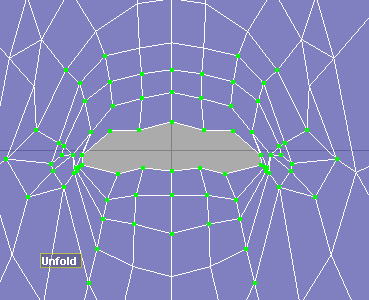
- Select smaller or larger sets of UVs and use the
Smooth UV Tool in conjunction with the transformation tools to quickly clean up your UV shell.
